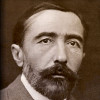“ Ideas, as the highest attainable by man, and at the same time entirely perceptive or intuitive knowledge, is a proof that the source of true wisdom does not lie in abstract rational knowledge, but in the clear and profound apprehension of the world in perception. Therefore wise men may live in any age, and those of the past remain wise men for all succeeding generations. ”
Arthur Schopenhauer, The World as Will and Representation (1819). copy citation
| Author | Arthur Schopenhauer |
|---|---|
| Source | The World as Will and Representation |
| Topic | wisdom perception |
| Date | 1819 |
| Language | English |
| Reference | |
| Note | Translated by R. B. Haldane and J. Kemp |
| Weblink | http://www.gutenberg.org/files/40097/40097-h/40097-h.html |
Context
“It seems, however, to me that learning may be compared to a heavy suit of armour, which certainly makes the strong man quite invincible, but to the weak man is a burden under which he sinks altogether.
The exposition given in our third book of the knowledge of the (Platonic) Ideas, as the highest attainable by man, and at the same time entirely perceptive or intuitive knowledge, is a proof that the source of true wisdom does not lie in abstract rational knowledge, but in the clear and profound apprehension of the world in perception. Therefore wise men may live in any age, and those of the past remain wise men for all succeeding generations. Learning, on the contrary, is relative; the learned men of the past are for the most part children as compared with us, and require indulgence.
But to him who studies in order to gain insight books and studies are only steps of the ladder by which he climbs to the summit of knowledge.”
source


